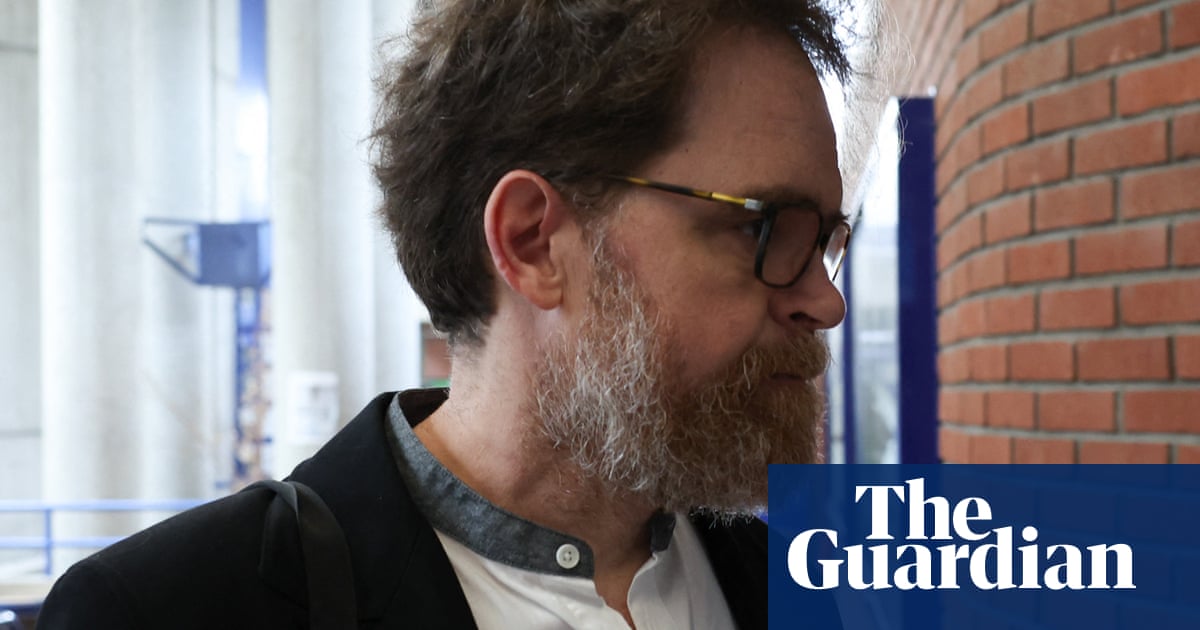Three former executives at the French video game company Ubisoft used their position to bully or sexually harass staff, leaving women terrified and feeling like pieces of meat, a French court has heard.
The state prosecutor Antoine Haushalter said thetrial of three senior game creatorsfor alleged bullying, sexual harassment and, in one case, attempted sexual assault was a “turning point” for the gaming world. It is the first big trial to result from the #MeToo movement in thevideo games industry, and Haushalter said the case had revealed “overwhelming” evidence of harassment.
In four days of hearings, female former staff members variously described being tied to a chair, forced to do handstands, subjected to constant comments about sex and their bodies, having to endure sexist and homophobic jokes, drawings of penises being stuck to computers, a manager who farted in workers’ faces or scribbled on women with marker pens, gave unsolicited shoulder massages, played pornographic films in an open-plan office, and another executive who cracked a whip near people’s heads. The three men deny all charges.
Haushalter said “the world of video games and its subculture” had an element of “systemic” sexism and potential abuse. He said the#MeToomovement in the gaming industry had allowed people to speak out.
“It’s not that these actions were not punished by the law before. It’s just that they were silenced, and from now on they will not be silenced,” he said.
Ubisoft is a French family business that rose to become one of the biggest video game creators in the world. It has been behind several blockbusters includingAssassin’s Creed,Far Cryand the children’s favouriteJust Dance.
The court in Bobigny, in Seine-Saint-Denis, heard that between 2010 and 2020 at Ubisoft’s offices in Montreuil, east of Paris, the three executives created an atmosphere of bullying and sexism that one member of staff likened to a “boys’ club”. One alleged victim told the court: “The sexual remarks and sexual jokes were almost daily.”
Tommy François, 52, a former vice-president of editorial and creative services, is accused of sexual harassment, bullying and attempted sexual assault. He was alleged once to have tied a female member of staff to a chair with tape, pushed the chair into a lift and pressed a button at random. He was also accused of forcing one woman wearing a skirt to do handstands.
“He was my superior and I was afraid of him. He made me do handstands. I did it to get it over with and get rid of him,” one woman told the court.
At a 2015 office Christmas party with a Back to the Future theme, François allegedly told a member of staff that he liked her 1950s dress. He then allegedly stepped towards her to kiss her on the mouth as his colleagues restrained her by the arms and back. She shouted and broke free. François denied all allegations.
Another witness told the court that during a video games fair in the US, François “grabbed me by the hair and kissed me by force”. She said no one reacted, and that when she reported it to her human resources manager she was told “don’t make a big thing of it”.
The woman said that later, in a key meeting, another unnamed senior figure told staff he had seen her “snogging” François, “even though he knew it had been an assault”.
She said François called her into his office to show her pictures of his naked backside on his computers and on a phone. “Once he drew a penis on my arm when I was in a video call with top management,” she said.
The woman said these incidents made her feel “stupefied, humiliated and professionally discredited”.
François told the court he denied all charges. He said there had been a “culture of joking around”. He said: “I never tried to harm anyone.”
Serge Hascoët, 59, Ubisoft’s former chief creative officer and second-in-command, was accused of bullying and sexual harassment. The court heard how at a meeting of staff on an away day he complained about a senior female employee, saying she clearly did not have enough sex and that he would “show how to calm her” by having sex with her in a meeting room in front of everyone.
He was alleged to have handed a young female member of staff a tissue in which he had blown his nose, saying: “You can resell it, it’s worth gold at Ubisoft.”
The court heard he made guttural noises in the office and talked about sex. Hascoët was also alleged to have bullied assistants by making them carry out personal tasks for him such as going to his home to wait for parcel deliveries.
Hascoët denied all the charges. He said: “I have never wanted to harass anyone and I don’t think I have.”
The former game director Guillaume Patrux, 41, is accused of sexual harassment and bullying. He was alleged to have punched walls, mimed hitting staff, cracked a whip near colleagues’ faces, threatened to carry out an office shooting and played with a cigarette lighter near workers’ faces, setting alight a man’s beard. He denied the charges.
The panel of judges retired to consider their verdict, which will be handed down at a later date.
